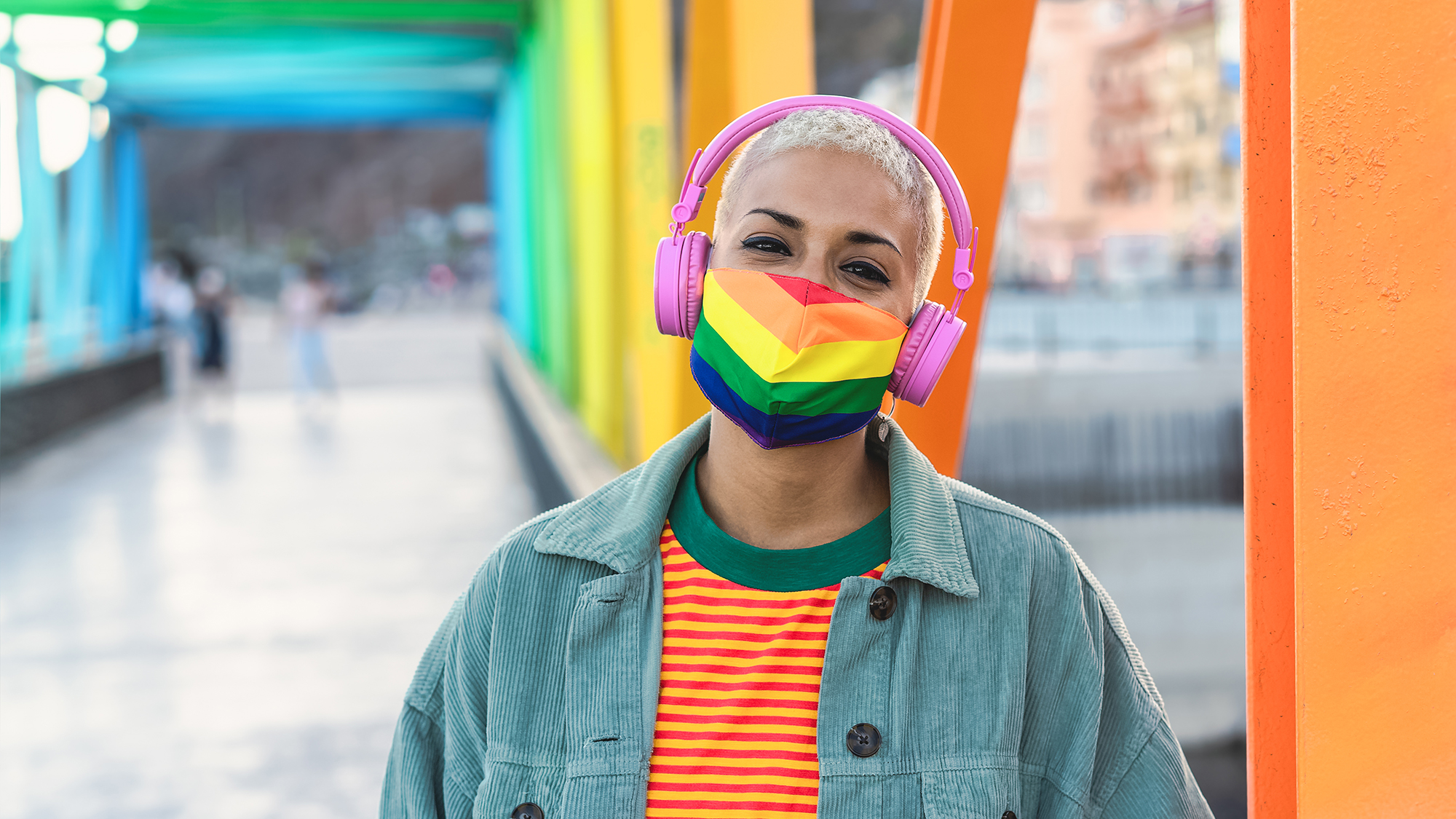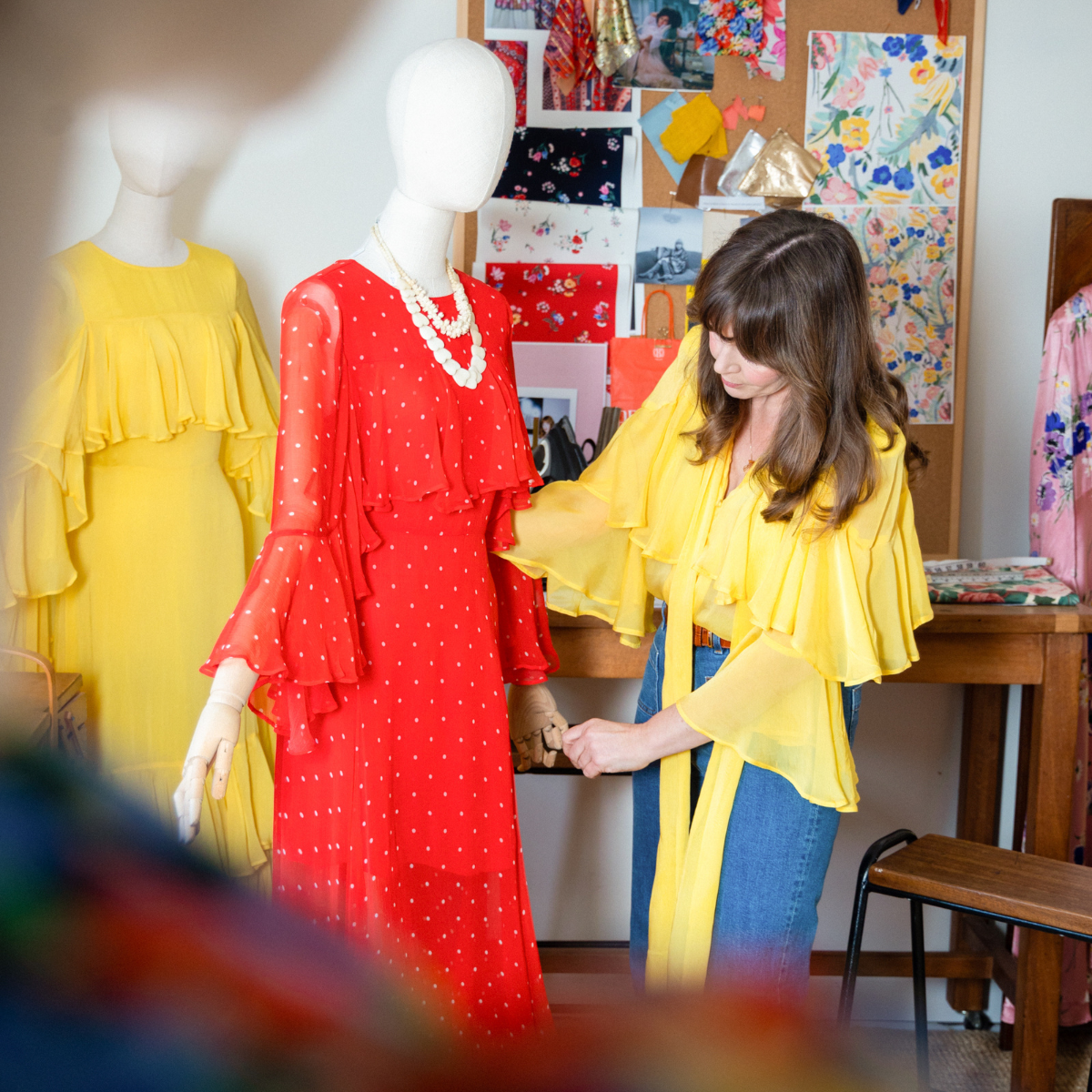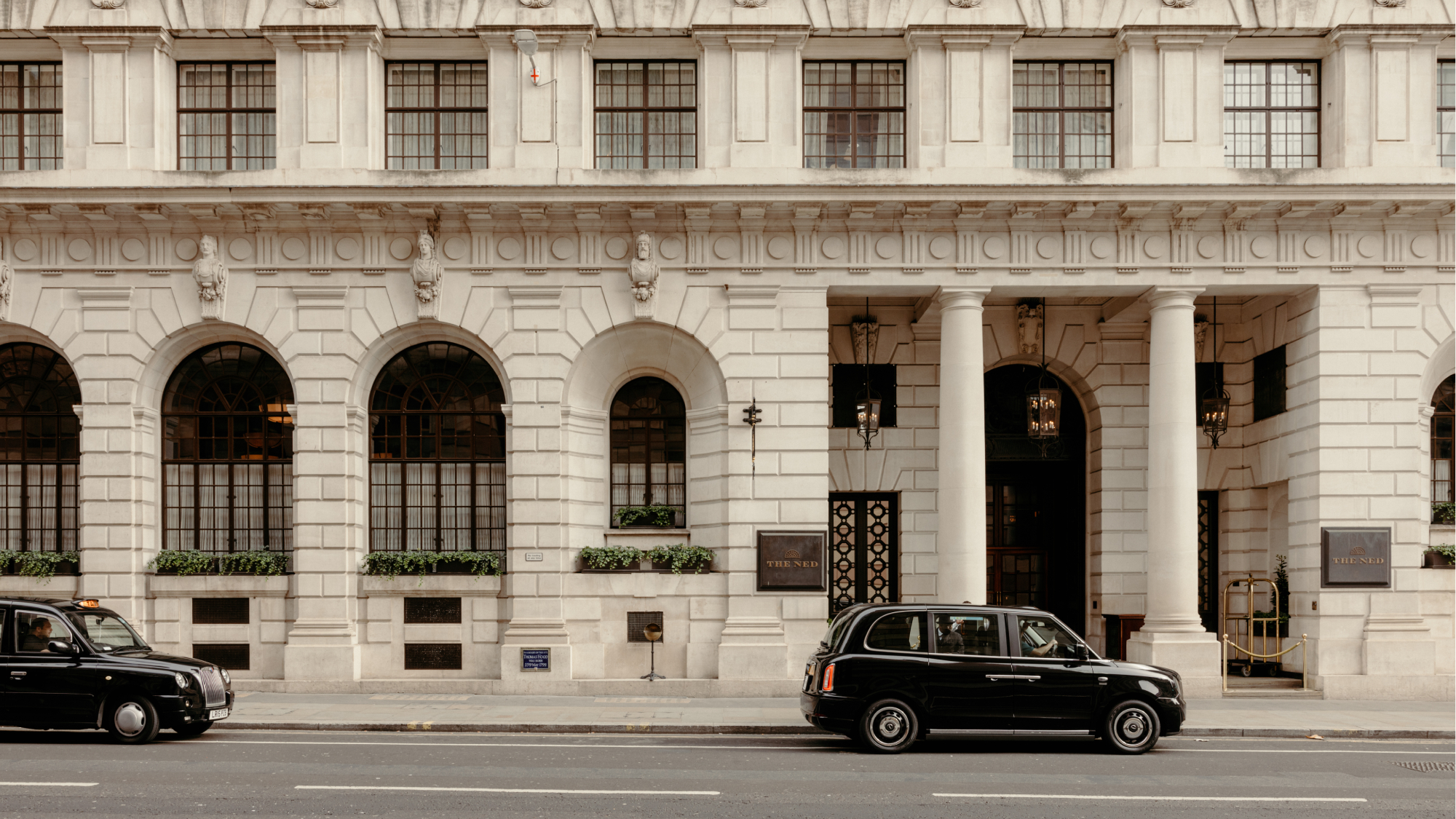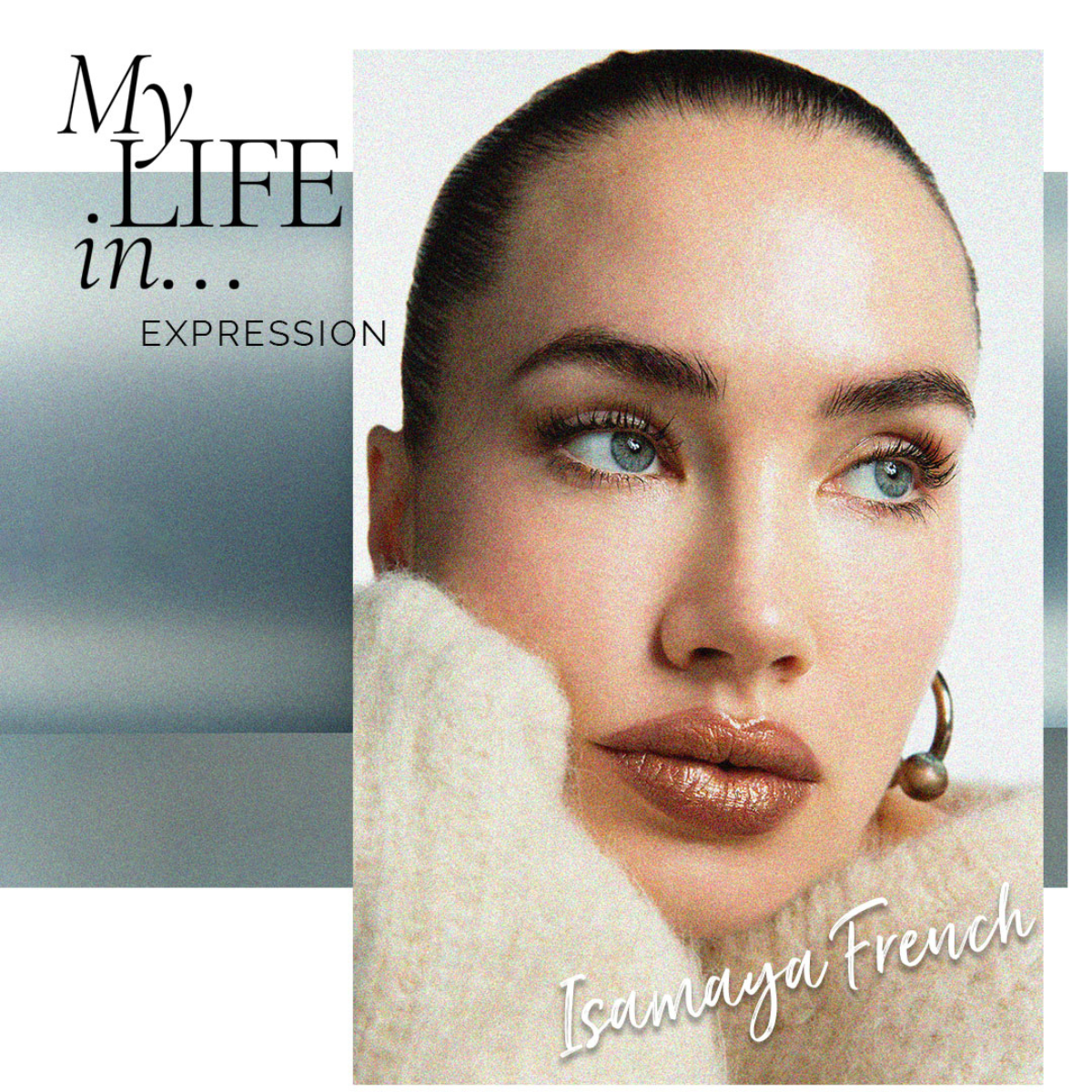Googling the definition of pansexual? Your guide to what it means to be pan
'The untidiness of actual lived human experience is stressful for some people, so they want to reduce it and make it more simple than it is.'

'The untidiness of actual lived human experience is stressful for some people, so they want to reduce it and make it more simple than it is.'
Not many good things came from 2020, but one thing's for sure: it brought the world closer to being a place where all sexual orientations are not just embraced, but celebrated.
It may have been dark at times, but it wasn't all bad. In the US alone, an unprecedented number of LGBTQ+ leaders took office, with numbers almost doubling over the last four years. National treasure Phillip Schofield came out as gay, and Disney+ debuted Out, the first movie from the corporation to feature a gay lead character.
You likely heard the term pansexual thrown around a lot last year as actress Bella Thorne and Lib Dem MP Layla Moran both came out as pan. Yet, while you might reckon you know what it means, it's definition is more complex than you think, and overlaps with the meaning of bisexual, too.
A current definition from PFlag states that identifying as bisexual is as follows:
Commonly referred to as bi or bi+. According to bi+ educator and advocate Robyn Ochs, the term refers to a person who acknowledges in themselves the potential to be attracted--romantically, emotionally and/or sexually--to people of more than one gender, not necessarily at the same time, in the same way, or to the same degree. The "bi" in bisexual can refer to attraction to genders similar to and different from one's own. People who identify as bisexual need not have had equal sexual or romantic experience—or equal levels of attraction—with people across genders, nor any experience at all; attraction and self-identification determines orientation.
Their website states that pansexuality, on the other hand, refers to:
A person whose emotional, romantic, and/or physical attraction is to people inclusive of all genders and biological sexes. People who are pansexual need not have had any sexual experience; it is the attraction and self-identification that determines the orientation.
So, what does 'pansexual' mean?
As above, someone who is pan is attracted to a person, regardless of their sexuality or gender identity, explains LGBTQ+ rights activist Philip Baldwin. "This attraction encompasses sexual, romantic, and emotional intimacy and means that, for pan individuals, gender or sex are not the determining factors for sexual or romantic attraction," he explains.
Marie Claire Newsletter
Celebrity news, beauty, fashion advice, and fascinating features, delivered straight to your inbox!
But here's where it perhaps gets a little confusing: just because you're pan doesn't mean you can't be bisexual, or queer, or other, too. Speaking on Zoom to the activist, speaker, and editor mentioned in the PFlag definition above, Robyn Ochs, she shares an insight with me into the overlap. "There's been a debate inside the LGBTQ+ community for decades, maybe as long as we've existed, over what we should call ourselves," she explains.
"What are the boundaries and borders of every word? Who gets to use it? Who doesn't? There's a lot of identity border policing; I think it comes from a place of stress and discomfort because we're trying to find comfort where it doesn't exist, sometimes at the expense of one another," she adds.
Robyn makes a good point here - you don't need to identify with any sexual identifiers. Telling a person that they need to identify with certain terms is, in her opinion, arrogant. "Who am I to tell everyone we should all identify as pansexual, even if it is the most open and wide identifier, in my opinion? I personally am attached to the word bisexual. It's my history. It's been my identity for 44 years. I like that word."
But that doesn't mean she doesn't identify as other LGBTQ+ terms, too.
The Bi / Pan debate
One of the ways this conflict has panned out? The Bi / Pan argument, which debates which one word is the best word the people with the potential to be attracted to more than one gender should use to describe their identity - or identities. "I think it's a problematic question ," Robyn shares. Why? "It would be impossible to come to a consensus."
One of the ways this conflict has panned out? The Bi / Pan argument, which debates which one word is the best word that people with the potential to be attracted to more than one gender should use to describe their identity - or identities. "I think it's a problematic question ," Robyn shares. Why? "It would be impossible to come to a consensus."
"Bi+ is an inclusive term we use to include all non-monosexual identities, so bisexual, queer, fluid, straightish, homoflexible, omnisexual, multisexual, all of them," shares Robyn. "My adaptation is that the bi in bisexual means I'm attracted to genders like my own, and genders different from my own," she explains.
According to Philip, the term pansexual has actually been in use since the early twentieth century, yet there's still debate around the overlap between the definitions of bisexuality and pansexuality.
"I guess the term pansexual evolved alongside," shares Robyn. She stresses that pansexuality is an identity that's come into wider usage fairly recently, and takes place alongside bisexuality, in her mind. "It's like the term queer," she explains. "Queer is a word that lots of gay, lesbian, pansexual, omnisexual, and other people use to describe themselves, at the same time as using identifiers like gay, or bi."
One of the things that she's heard from many people who identify as pan, at least in part? That the term is used situationally. "For example, you might use a different word talking to your grandmother as when talking to your best friend. Many people who identify as pansexual, in my experience, sometimes say they're bisexual and sometimes say they're pansexual, depending on who they're talking to."
Sadly, pansexuality is not as known or understood, so often people find it easier to just use a word like bisexual or queer, Robyn adds.
Choosing how to identify yourself
"Choosing how to identify is a very subjective and personal act. If you ask a hundred people who identify with any of these words precisely what this word means, you'll get a range of definitions. There's no single, universally accepted definition of any of these terms," she explains.
Take queer, for example. Robyn herself identifies as queer when talking about community, as it is a broad term that encompasses lots of other identities within it. "But that's not my primary identity," she explains. "My primary identity is bisexual, and my secondary identities are queer and pan."
Addressing the overlap
One of the main debate points in the Bi / Pan argument is that lots of LGBTQ+ terms have 'substantial overlap', according to the expert. "They're not the same: just as blue and turquoise, or azure and navy are not the same, but they all have blue in them. I think of them as overlapping, but not identical," she goes on to explain.
How they are not identical, you ask? Well, the answer to that would vary from person-to-person, she shares.
Using as many adjectives as you need
Giving a brief history lesson, Robyn goes on to explain how people's sexual identities developed over time to be used as proper nouns. Why? In her opinion, as an organising tool for the LGBTQ+ rights movement. "It became a tool for organising, and then became over-solidified. It started becoming over-used as a noun - for example, I am a Lesbian, I am a Bisexual, or I am a Gay Man," she says.
Luckily, times have moved on, and Robyn now encourages you to use the terms differently - in whatever way you choose. Now, people are increasingly using identity terms as descriptors. That is, people identify as gay, queer, pan, or other, rather than being it. "As adjectives, you can have as many labels as you need," Robyn shares. "Bisexual is my primary identity, but I also identify as queer, and I also identify as pan. They all overlap, and they all work for me."
How might you know that you identify as pan?
Explore relationships with people you find attractive
It's essential to remember to do this at your own pace, Philip explains.
"Some people may know they are pan very quickly, but for others, it could take longer. Some people see sexuality as fluid, but it is really up to you to decide where you fit within our rainbow family," he shares.
Don't panic if you don't have one label
He also points out that, for some, at first, figuring out you are pan may be difficult for some people to get their heads around. Don't worry - that's totally normal. "Wherever you sit within the LGBTQ spectrum, however you identify, and however you choose your journey, your experience is very personal and unique. Remember, it's for you (and not others) to determine who you are," he adds.
Don't feel pressured
Or allow anyone to pigeonhole you, for that matter. "Whatever you decide, there will be people there who love and support you." Hear, hear.
3 tips for if you think you may be pan
Confide in someone you trust
"In terms of coming out as pan, my advice is very similar to that for anyone else who is LGBTQ," the activist shares. "I first told a trusted friend that I was gay - someone who I knew would respect my confidence." Ensuring you're confiding in the right person is important, as they'll let you take things at your own pace and won't pressure you.
While you're at it, read our guide to how to come out, featuring expert comment from leading LGBTQ+ icons.
Come out when you feel most comfortable
"I found it most difficult to tell my parents, but this is not the same for everyone. Sometimes people choose to come out when they are in a relationship with someone. They want to introduce that special person to family or friends," he shares. His advice? Do what you feel comfortable with. If you're apprehensive, perhaps trust your instincts and confide in a few close friends first.
Seek support
There are plenty of great resources out there, according to Philip. “I recommend checking out the Stonewall and LGBT Foundation websites. The LGBT Foundation has a helpline (0345 330 30 30) as does Switchboard (0300 330 0630),” he adds.
Still not sure what pansexual means? Read this.
Ask yourself this: what if we took all the energy that gets spent arguing over which is the best word that every one of us should use and instead turned that energy to creating a non-binary space for all of us, Robyn asks?
"People are generally more comfortable with binary thinking. Complex thinking makes you think and forces people out of a place of complacency," she explains.
"People want things to be simple, they want there to be one proper word, one proper defenition, and one proper understanding. People want there to be one proper term that describes all things of this sort - they want things to be tidy. The untidiness of actual lived human experience is stressful for some people, so they want to reduce it and make it more simple than it is. But we are out beautiful complex selves, and that's fine."
So, bottom line: use whatever identifiers, words, terms, or sexual identities work for you. Let's educate ourselves, respect other's sexual fluidity, and create that non-binary world—together.

Ally Head is Marie Claire UK's Senior Health and Sustainability Editor, nine-time marathoner, and Boston Qualifying runner. Day-to-day, she heads up all strategy for her pillars, working across commissioning, features, and e-commerce, reporting on the latest health updates, writing the must-read wellness content, and rounding up the genuinely sustainable and squat-proof gym leggings worth *adding to basket*. She also spearheads the brand's annual Women in Sport covers, interviewing and shooting the likes of Mary Earps, Millie Bright, Daryll Neita, and Lavaia Nielsen. She's won a BSME for her sustainability work, regularly hosts panels and presents for events like the Sustainability Awards, and is a stickler for a strong stat, too, seeing over nine million total impressions on the January 2023 Wellness Issue she oversaw. Follow Ally on Instagram for more or get in touch.
-
 A day in the life of Nicola Orme, the Queens of Archive founder behind the fashion set's favourite vintage-inspired dresses
A day in the life of Nicola Orme, the Queens of Archive founder behind the fashion set's favourite vintage-inspired dressesEverything she gets up to in her 9-5
By Sofia Piza
-
 Easy Escapes: The Ned offers a decadent retreat in the heart of London
Easy Escapes: The Ned offers a decadent retreat in the heart of LondonThe Ned eclipses other London hotels with its sleek spa, extensive dining options and party atmosphere
By Lauren Hughes
-
 Isamaya Ffrench on disrupting the beauty industry and her desert island make-up bag
Isamaya Ffrench on disrupting the beauty industry and her desert island make-up bagFashion's favourite make-up artist discusses her life in expression
By Nessa Humayun